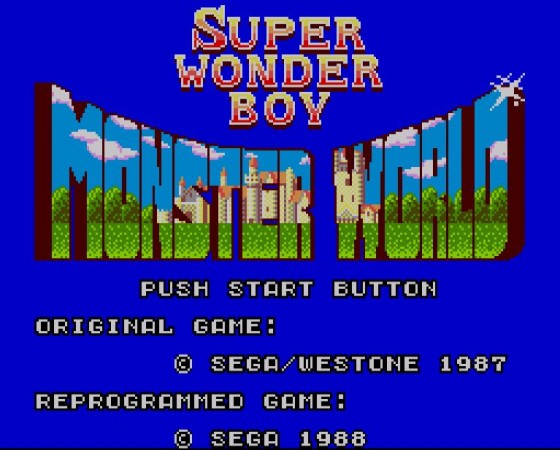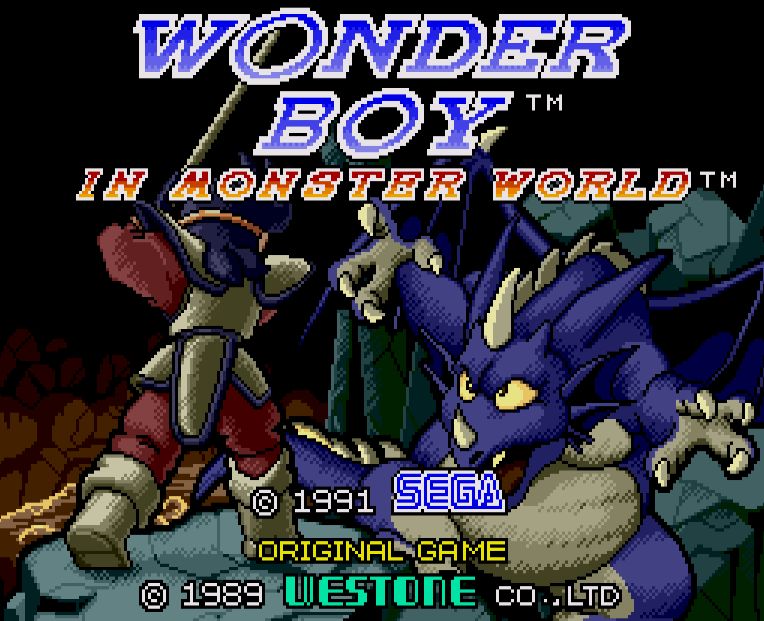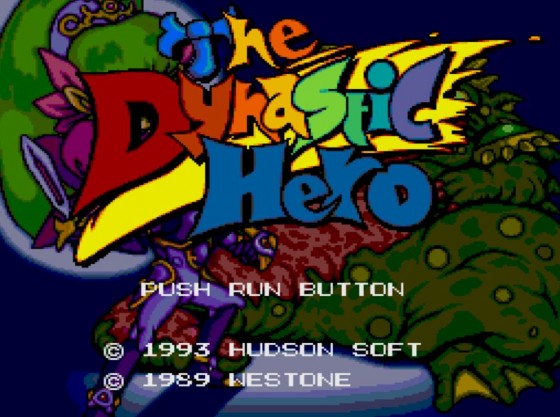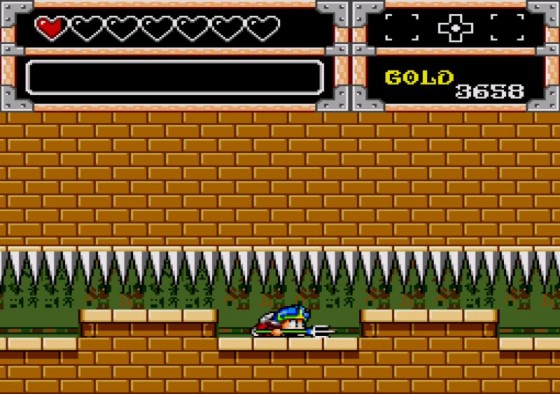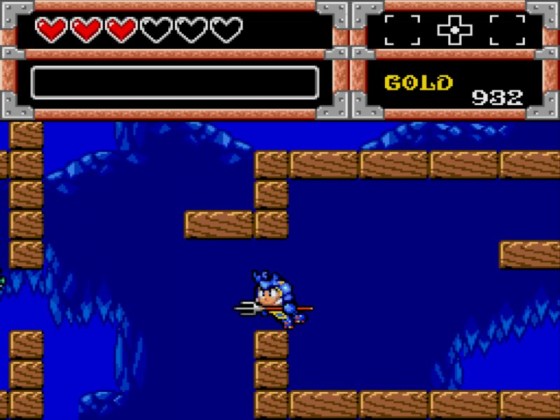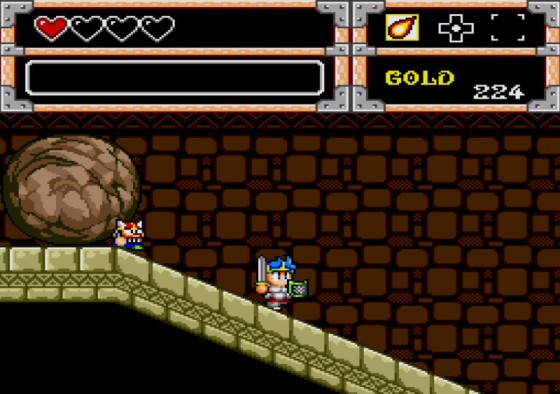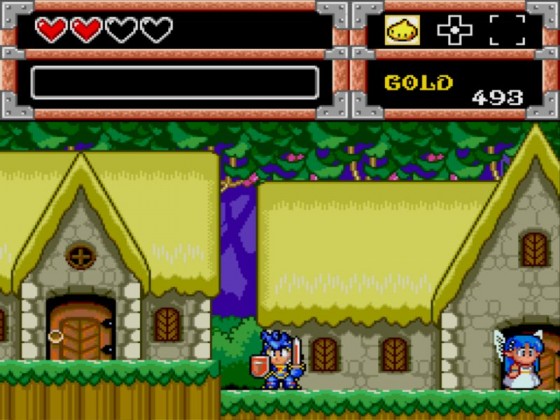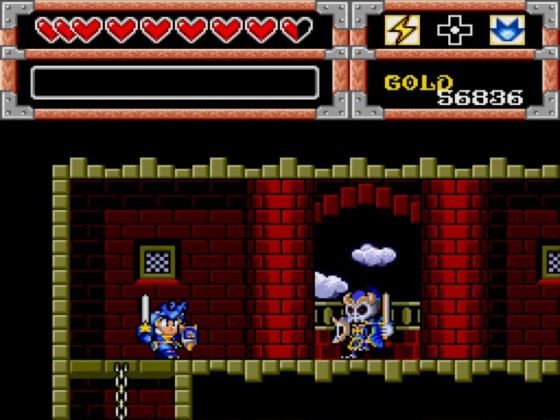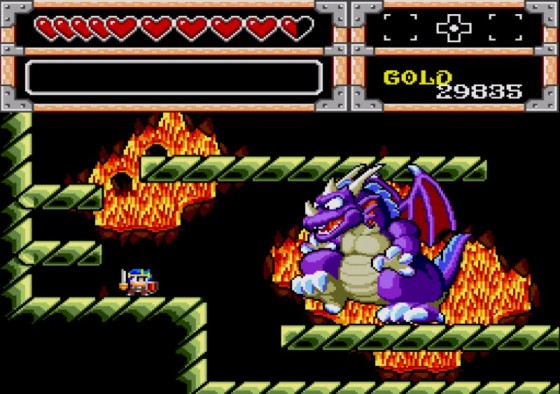When people think of their early days of gaming, there’s usually a few names that come up depending on when you started or what console you favored. In my day there were two schools. We had the Nintendo kids, and the SEGA kids. While I had both a Genesis and a Nintendo, there was one franchise I remember that Nintendidn’t. That was Wonder Boy. Now that I’m older, I’m aware that the Wonder Boy games did, in fact, exist on Nintendo consoles, as well as the TurboGrafx-16 and several others. There’s one specific entry I want to take a look at today. First, a quick history lesson.
The Wonder Boy series gets very convoluted when you try to follow it. There’s an overlapping series called Monster World, which have more RPG elements than the rest of the series. Not all Monster World games are Wonder Boy games and vice versa. Specifically, I want to focus on the Monster World series. First, we have Wonder Boy in Monster Land, which was called Super Wonder Boy in Monster World in Japan, which showed up in arcades and for the Master System. Jaleco would later retool the game as Saiyuki World and release it for the Famicom while Hudson Soft ported it to PC Engine as Bikkuriman World.
Then we have Wonder Boy III: The Dragon’s Trap, not to be confused with Wonder Boy III: Monster’s Lair, which actually comes before it in the series and plays like a sidescrolling shooter. Technically it would have been Wonder Boy IV: The Dragon’s Trap, but it was the third Wonder Boy game released on the Master System and Monster’s Lair wasn’t very well known outside of Japan. This game game was also released on TurboGrafx-16 is Dragon’s Curse. In Japan this game was called Monster World II on the Game Gear. In an effort to throw off fans completely the PC Engine version was named Adventure Island.
There’s also a Brazilian version of most of these games released by Tec Toy, featuring characters from a children’s comic called Turma da Mônica. I think we’re all confused enough already so I’m going to pretend those aren’t a thing for the rest of this article.
Why the name changes? Why is a SEGA franchise appearing in slightly modified forms on other consoles? SEGA only owns the rights to the Wonder Boy character. The game series was developed by a company called Westone. Since SEGA has no rights to the games themselves, they were able to be ported to a number of systems. The same with happened with Puyo Puyo. SEGA put Sonic characters in it and called it Dr. Robotnik’s Mean Bean Machine, while Nintendo slapped Kirby into it and dubbed it Kirby’s Avalanche. So, it stands to reason that the next game would be released under a few different names and systems as well, right? Right! So, without further ado, I present to you Wonder Boy V: Monster World III, Wonder Boy in Monster World, and The Dynastic Hero! Check out the videos below to see the differences between the two versions, or the lack thereof.
Originally released in 1991 as Wonder Boy V: Monster World III for the Mega Drive in Japan, it was released on Genesis in North America as Wonder Boy in Monster World. In 1993, Hudson would release their own version of the game for the TurboGrafx-16 Super CD-ROM system, which wouldn’t come out in Japan until 1994. There are some minor differences between the two versions. The music is completely different, town names and enemy names are changed, and some of the sprites were redrawn with a bug theme in The Dynastic Hero. The biggest difference between the two is the music and the fact that The Dynastic Hero has an opening movie and lets you have four save files instead of just one. For the most part, the games are identical and everything I cover is going to apply to both unless I specifically note it.
There’s not much of a story in either version you play. There’s monsters in the land causing chaos. Shion, this game’s Wonder Boy, sets out to become the legendary hero and stop them to bring peace to the land. In The Dynastic Hero, the evil Drillkor Empire is attacking the land of Tarron. Only Dyna, who looks like a cross between Mega Man and a hercules beetle, can stop them! Go save the fairy maiden, Brenna! It’s about as elaborate as sand, but it gets the job done. Some of the story elements that happen along the way are kind of cool, especially if you’ve played the other Wonder Boy games. For example, one of the items you must find is the Ancient Axe, which is a reference to the original Wonder Boy game. You get these references a bit less in The Dynastic Hero, thanks to the changed names. It also bears mentioning that The Dynastic Hero has a bit more of a flavorful translation, while Wonder Boy in Monster World seems dry and more literal.
Had these games released more recently, they’d be called “Metroidvania” games. It’s a side scrolling action game with RPG elements, very similar to Wonder Boy III: The Dragon’s Trap, but much more intricate. There’s a central hub that connects the world. When you get to a town, they’ll tell you about a specific problem they’re having. This involves going into a dungeon and beating a boss. Buy yourself some new gear, learn some magic, and plunge yourself into the dungeon where you’ll find a certain item that lets you proceed into another part of the world.
You’ll go from dark jungles to visiting Poseidon under the sea, into a pyramid, to a land of ice, into a volcano and even a castle in the sky. The world is riddled with secrets, which is standard fare for the series. There’s secret doors, spots where you can jump and get bags of money, and hidden walls with treasure chests waiting to be discovered. I don’t think I’ve ever found them all, but it’s a completionist’s dream.
As you explore the dungeons, you’ll find more hearts and magic to help you through. There are a few puzzles you’ll encounter, but none of them are too difficult. The most difficult is the Sphinx, a recurring enemy through the series, who makes sure you’ve been paying attention as you’ve been playing. All in all, there’s seven actual dungeons, not counting the areas you need to go through to get to them. There is a lot of content, but you can still beat it in a day. I’d say it has about the same length as The Legend of Zelda: A Link to the Past.
The control is much more refined than the previous games in the series. Some people might be put off at the start of the game as you’ll move slow, and won’t have much range to your attack. This improves as you go through and get better stuff, which is a throwback to Wonder Boy in Monsterland. The hit detection is spot on, and the jumping is smooth, assuming you’ve bought good boots. I can’t say I’ve ever felt frustrated with the platforming unless the game was deliberately trying to be annoying. There’s some awkwardness in The Dynastic Hero due to the fact that the game was designed with a three button controller in mind. When using items and spells, instead of being mapped to the A button they’re mapped to the Run button.
As far as challenge, Wonder Boy in Monster World is a bit harder than The Dynastic Hero. This is only because of some changes made during the localization. They buffed the final boss to the point where it’s frustrating, and you get a “game over” when you lose all of your hearts instead of being sent back to the last inn you stayed at. Since both games weren’t localized by the same people, The Dynastic Hero keeps the difficulty the same as the original Japanese version the games were based off of. With that said, the most challenging part of the game is the final castle; the rest of it is pretty average.
The music is very different in both games. Some people might expect The Dynastic Hero to have a CD-Audio version of the same tracks from Wonder Boy in Monster World. While that’d be amazing, it’s not the case and The Dynastic Hero has its own unique soundtrack. While it is high quality and sounds pretty good, I don’t like it as much as Wonder Boy in Monster World.
Wonder Boy in Monster World featured a number of tracks from the previous games that were redone, and they sounded great. Specifically the music during the final castle which is an iconic theme for the series, as well as the boss music. It has a lot of nostalgia value, so if you’re not familiar with the other games, that will be lost on you. Either way, they’re both good. My biggest gripe with the music in The Dynastic Hero is that a number of the tracks are reused in different areas but they don’t quite fit in every place they’re used. For example, the same track is used for the underwater areas as well as the ice castle, which works well in Wonder Boy in Monster World. In The Dynastic Hero, the music they use doesn’t quite match both areas.
Both the TurboGrafx-16 and the Genesis were considered graphical underdogs compared to the SNES, but you wouldn’t really guess that by this game. In both versions, everything’s very colorful and the sprites look very nice. Some of the bosses are huge, and there’s very little slowdown, if any. TurboGrafx-16 does a fantastic job recreating everything from the Genesis version. The Genesis version has more background scrolling, and some of the colors were changed a bit in the TurboGrafx-16 version, probably due to palette limitations. The end result is The Dynastic Hero has a bit more of a pastel look than Wonder Boy in Monster World.
Whether you have The Dynastic Hero or Wonder Boy in Monster world, you’re going to have the same experience. If you like your sidescrollers to have a bit more meat on their bones and want something that makes you explore its world a bit, I highly suggest checking out either version. If you plan on playing on the original hardware, The Dynastic Hero is one of the rarer TurboGrafx-16 CD-ROM games, if not the rarest. I’ve seen it sell for over $1000. Unless you’re a diehard collector, I wouldn’t say it’s worth it. It is available on the Wii Virtual Console if you want to check it out. The Wonder Boy in Monsterworld cartridge sells for a couple of dollars if you can find it, and it’s also on the Wii Virtual Console, XBLA, and PSN. It’s a fantastic game, one that’s been among my favorite games since I was a little brat in grade school.
There’s also a Master System version, which I’d suggest avoiding at all costs. I snagged a copy a few years back thinking it’d be a cool relic to have. I’m a huge fan of the Wonder Boy games, and I own both the Japanese and US versions of The Dynastic Hero and Wonder Boy in Monster World. It seemed like a natural acquisition. The Master System version was literally painful to play. The music was droning, off-key renditions of the Genesis version. The graphics were bad by Master System standards, it used some of the longest passwords I’ve ever seen, and in order to hit enemies you’d need to be standing on top of them. It’s best left forgotten. Stick to the Genesis or TurboGrafx-16.
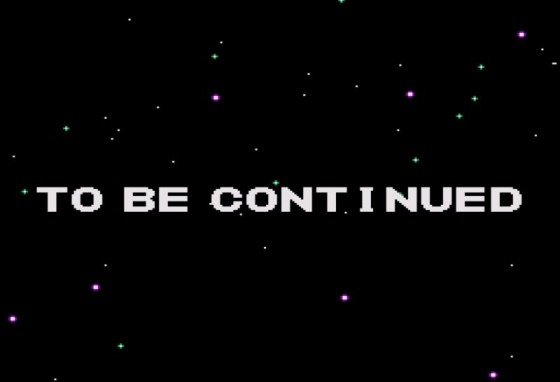
Yep, in eleven years later if you were waiting to play the sequel in English. Thanks, SEGA of America!
Thankfully the nomenclatural confusion ended with Wonder Boy in Monster World, as it’s sequel only had one incarnation and title: Monster World IV.
Beat it? Seen it? Still wondering what’s up with the Charmstone guy? I want to know. Comment below or hit me up on facebook or twitter!

